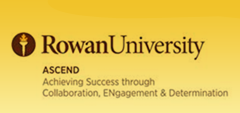Location
Room 221 A, Chamberlain Student Center
Start Date
13-2-2019 11:00 AM
End Date
13-2-2019 12:00 PM
Document Type
Presentation
Description
Struggle, hardship, turmoil. These are a few words that come to mind when thinking about barriers to success that first-generation college students face. How can we help turn these three adjectives into more positive predictors? This educational workshop focuses on evidenced-based practices for supporting first-gen students, specifically focusing on two effective programs for at-risk scholars. Together, we will investigate the workings of the University of California’s (UC) Student Academic Preparation and Educational Partnerships (SAPEP) program and Colorado State University’s (CSU) Key Communities (Key) program. SAPEP’s programs work holistically with educational institutions, community organizations, and the business sector to improve academic achievement among at-risk groups. The educational interventions span from Pre-K through post-graduate study to support scholars in achieving their goals. The Key program also helps first-generation students, but is focused solely on the university level. This approach implements specialized learning communities for first-year university students. Key emphasizes the importance of the campus community, learning in and outside of the classroom, and providing regular feedback to students. Both services present thought-provoking material that can be utilized on campuses across the country. This elicits realistic hope that we can help students transition from struggle, hardship, and turmoil to strength, prosperity, and success.
Included in
Community College Leadership Commons, Educational Leadership Commons, Higher Education Commons, Student Counseling and Personnel Services Commons
Thriving, Not Surviving
Room 221 A, Chamberlain Student Center
Struggle, hardship, turmoil. These are a few words that come to mind when thinking about barriers to success that first-generation college students face. How can we help turn these three adjectives into more positive predictors? This educational workshop focuses on evidenced-based practices for supporting first-gen students, specifically focusing on two effective programs for at-risk scholars. Together, we will investigate the workings of the University of California’s (UC) Student Academic Preparation and Educational Partnerships (SAPEP) program and Colorado State University’s (CSU) Key Communities (Key) program. SAPEP’s programs work holistically with educational institutions, community organizations, and the business sector to improve academic achievement among at-risk groups. The educational interventions span from Pre-K through post-graduate study to support scholars in achieving their goals. The Key program also helps first-generation students, but is focused solely on the university level. This approach implements specialized learning communities for first-year university students. Key emphasizes the importance of the campus community, learning in and outside of the classroom, and providing regular feedback to students. Both services present thought-provoking material that can be utilized on campuses across the country. This elicits realistic hope that we can help students transition from struggle, hardship, and turmoil to strength, prosperity, and success.



